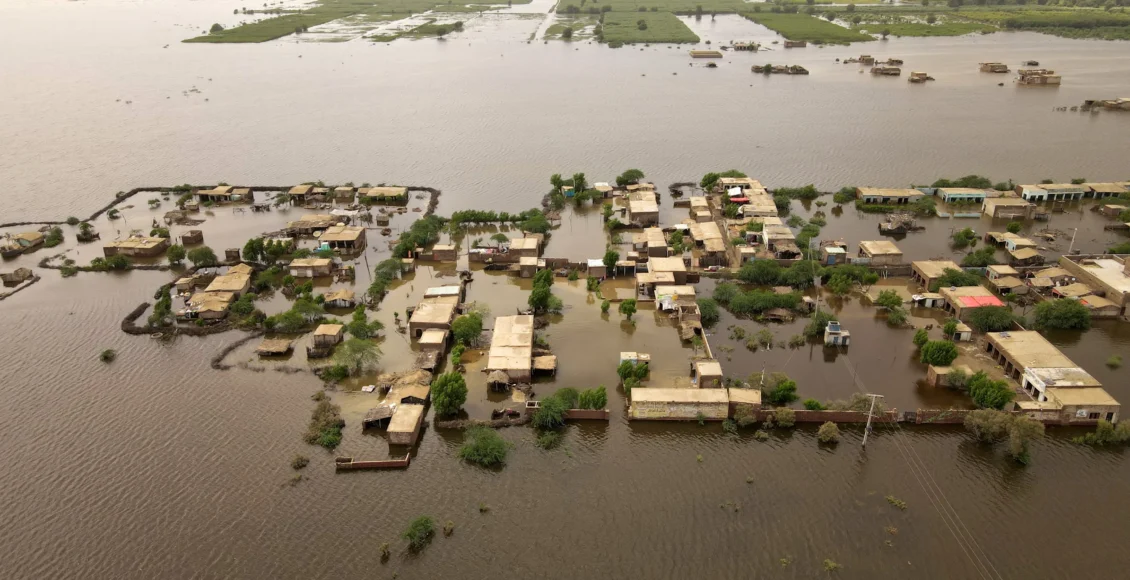Pakistani officials blame Indian actions for worsening flood crisis amid Indus treaty suspension
LAHORE – Pakistani officials on Friday accused India of worsening the country’s devastating floods by suspending the Indus Waters Treaty and failing to provide crucial river data, while a collapsed barrage gate on the Indian side unleashed massive water flows downstream.
Torrential monsoon rains have battered both India and Pakistan this week, but officials said the crisis in Punjab has escalated due to New Delhi’s actions. Floodwaters reached the outskirts of Lahore and threatened to submerge the major town of Jhang, in what authorities described as the region’s worst flooding in nearly four decades.
The Indus Waters Treaty, signed in 1960, has regulated shared rivers for over six decades. India suspended it earlier this year following a deadly attack that New Delhi blamed on Islamabad — an allegation Pakistan strongly denied.
Planning Minister Ahsan Iqbal told Reuters that India had stopped sharing river flow data:
“We could have managed better if we had better information. If the Indus Waters Treaty was in operation, we could have mitigated the impact.”
Indian media reported that the Madhopur barrage on the Ravi River suffered major damage after two gates collapsed, releasing uncontrolled water into Pakistan. Officials in Lahore said the surge worsened flooding in several areas.
An Indian government source denied deliberately flooding Pakistan but acknowledged the barrage damage, insisting flows were being managed by the Ranjit Sagar Dam upstream. “Incessant rain is causing this flood,” the source said, adding that alerts were being passed through diplomatic channels.
Pakistani officials countered that India issued four flood alerts this week, including one on Friday, but without the detailed data once shared under the treaty. Since its suspension, India has communicated only through its Islamabad embassy rather than direct water official channels.
Iqbal, whose constituency Narowal lies close to the Indian border and has been badly hit, said the crisis underscored the need for cooperation in the face of climate change. “Climate change is not a bilateral issue. It relates to humanity,” he remarked.
Meanwhile, Pakistani authorities on Friday blew up part of the Chenab River’s embankment to divert floodwaters threatening Jhang. Over one million people have been evacuated this week in eastern Pakistan, where three overflowing rivers from India pose a grave threat.
According to the National Disaster Management Authority (NDMA), at least 820 people have died in Pakistan during this monsoon season. Punjab’s eastern belt, home to half of the country’s 240 million people and its agricultural heartland, has seen widespread crop destruction.



